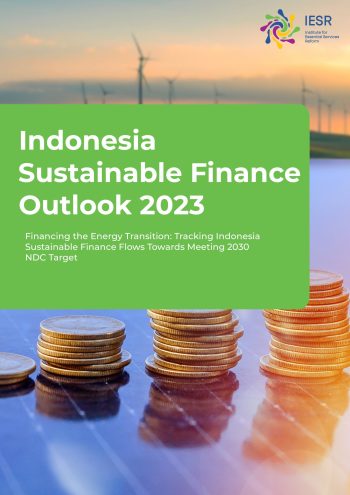Since 2018, RE investments have fallen short of their annual objective, leaving Indonesia with a sizable funding deficit before it can meet its 23% renewables share by 2025. To avoid future “transition hazards”, Indonesia must immediately begin the early transition by gradually shifting away from fossil fuels and toward renewable energy sources. Coal-fired power facilities are becoming stranded assets, which can have far-reaching implications on the economy and fiscal health of the utility.
The Indonesia Sustainable Finance Outlook (ISFO) 2023 is the Institute for Essential Services Reform’s (IESR) newest flagship research. It provides a comprehensive and in-depth analysis of sustainable financing in Indonesia, with a focus on the energy sector. This research goes beyond simple summaries of the country’s existing financial difficulties and requirements. In contrast, this research examined a wide range of sustainable financing schemes and instruments, including blended financing, carbon tax, green bonds, green sukuk, and financing sources like international finance and banking sector financing, with a focus on timely delivery based on developments as of Q3 2022. To keep up with the momentum of Indonesia’s G20 leadership, ISFO also updates the discussion of sustainable finance concerns at the G20 level.
Finally, IESR is excited to announce the first ISFO 2023. We believe this report can raise public understanding of sustainable financing while also serving as a resource for policymakers and related stakeholders, such as those in the energy and financial sectors.
Indonesia sustainable finance, Indonesia’s energy transition, Indonesia’s renewable energy financing deficit, ISFO 2023, Sustainable financing schemes and instruments, Blended finance, Carbon tax, Green bonds, Green sukuk, Indonesia’s G20 leadership, G20 sustainable finance

